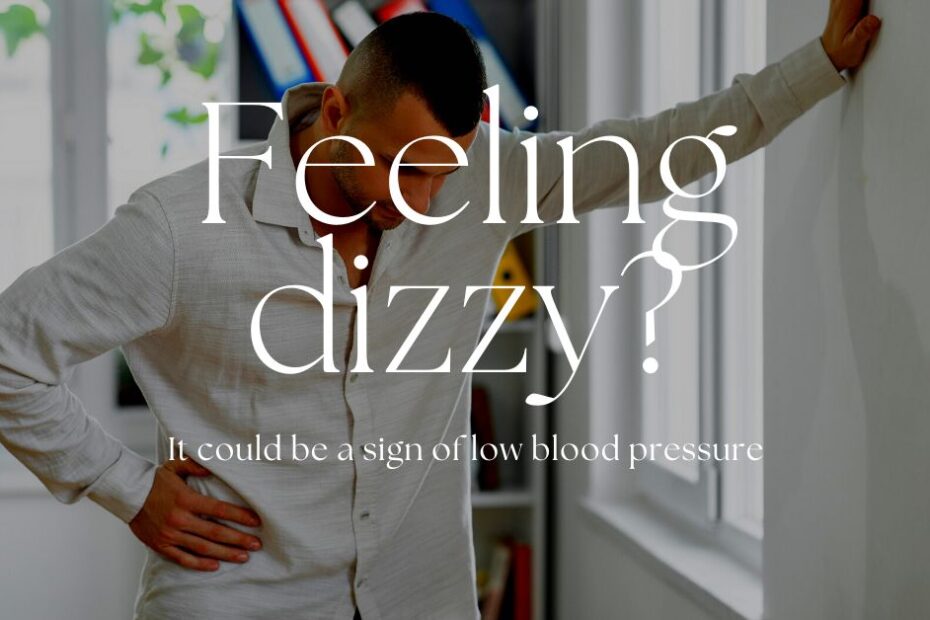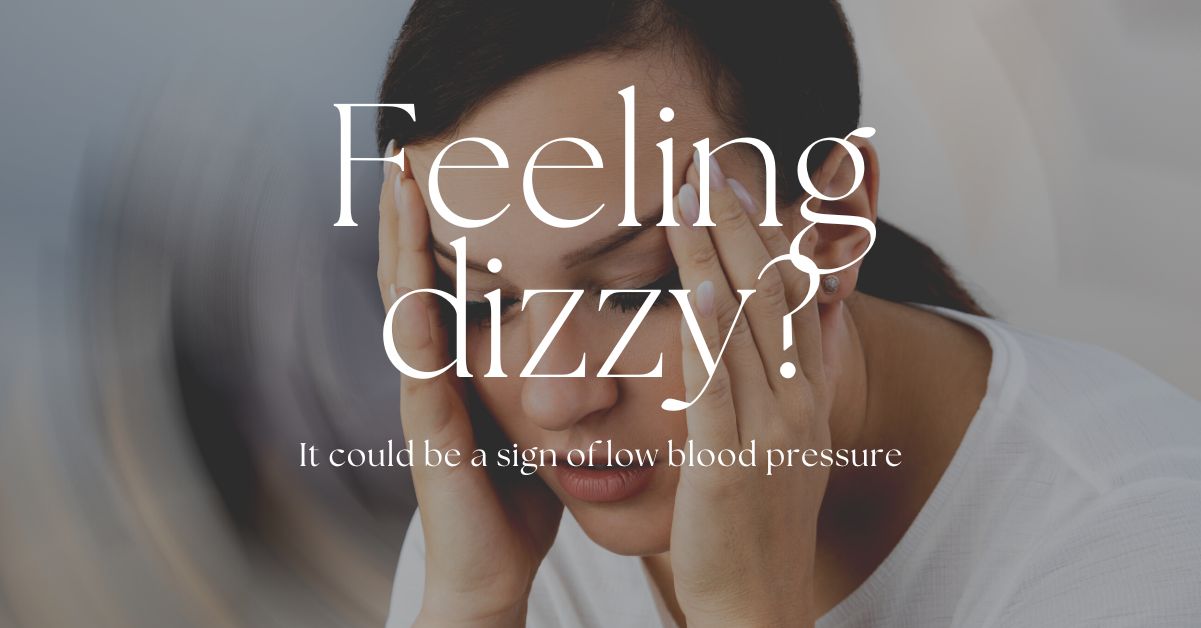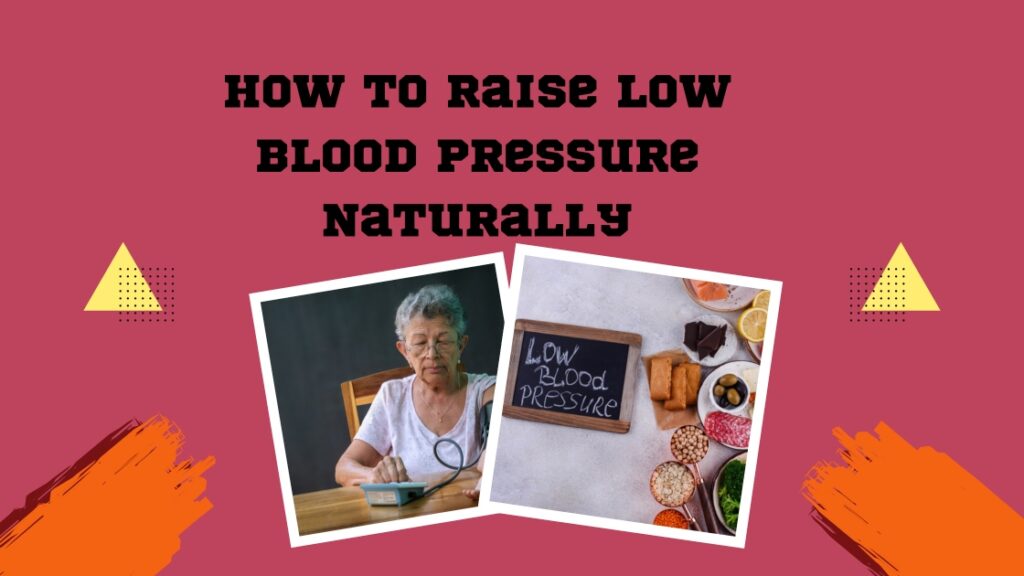Feeling dizzy is a common condition caused by various factors, including low blood pressure. Low blood pressure occurs when the brain doesn’t receive enough blood and oxygen, leading to dizziness. Dehydration, inner ear problems, medication side effects, and neurological disorders are other possible causes.
Vertigo is a type of dizziness characterized by a sensation of spinning or whirling. It is often caused by problems in the inner ear or the brain, but various factors can also trigger it.
When blood pressure drops, it can reduce blood flow to the brain and cause dizziness, lightheadedness, and vertigo.
Various factors, including dehydration, heart problems, endocrine problems, and certain medications, can cause low blood pressure. Sometimes, it may be a normal variation and not cause any symptoms.
If low blood pressure is causing vertigo, treatment may involve addressing the underlying cause. For example, if dehydration is the cause, increasing fluid intake may help. If a medication is causing low blood pressure, switching to a different medication or adjusting the dosage may be necessary.
In some cases, lifestyle changes such as increasing salt intake or wearing compression stockings may be recommended to help improve blood pressure and reduce vertigo symptoms. In more severe cases, medication such as fludrocortisone or midodrine may be prescribed to help raise blood pressure.
The Ups and Downs of Vertigo: Causes and Treatments
Here are some common triggers of vertigo that you should be aware of:
Inner ear disorders: Vertigo is often caused by disorders of the inner ear, such as benign paroxysmal positional vertigo (BPPV), vestibular neuritis, and Meniere’s disease.
Migraines: Migraines can cause vertigo and other symptoms such as headache, nausea, and sensitivity to light and sound.
Medications: Certain medications, such as antibiotics, antidepressants, and blood pressure medications, can cause vertigo as a side effect.
Dehydration: Dehydration can cause dizziness and lightheadedness, which can trigger vertigo.
Anxiety and stress: Stress and anxiety can cause dizziness and contribute to symptoms of vertigo.
Head injuries: Head injuries can damage the inner ear or the nerve pathways responsible for balance, leading to vertigo.
Positional changes: Certain movements, such as standing up too quickly or rolling over in bed, can trigger vertigo in some people.
Alcohol and caffeine: Alcohol and caffeine can affect the inner ear and contribute to symptoms of vertigo in some people
Causes and Symptoms of Low Blood Pressure
Low blood pressure, or hypotension, can be attributed to factors such as dehydration, heart problems, blood loss, and medications. Symptoms of low blood pressure include dizziness, lightheadedness, blurred vision, fatigue, and fainting. Depending on the underlying cause, these symptoms can occur suddenly or gradually.
Concerning Symptoms of Low Blood Pressure
Specific symptoms associated with low blood pressure may require attention:
Blood pressure is the force exerted by the blood against the walls of the arteries as the heart pumps it through the body. A regular blood pressure reading is around 120/80 mmHg, while low blood pressure is typically below 90/60 mmHg.
- Dizziness or lightheadedness is one of the most common symptoms of low blood pressure. You may feel like you’re about to faint or lose your balance.
- Fatigue: feeling tired or weak is another common symptom of low blood pressure, as the body may not get enough oxygen and nutrients.
- Blurred vision: When blood pressure is too low, the eyes may not get enough blood flow, leading to blurry or hazy vision.
- Nausea or vomiting: low blood pressure can also cause digestive issues, such as nausea and vomiting.
- Rapid or shallow breathing: if the body isn’t getting enough oxygen, it may compensate by increasing the breathing rate.
Feeling dizzy can be alarming and unsettling. It can happen suddenly or gradually and may be accompanied by other symptoms such as nausea, sweating, or headaches. While dizziness can have many different causes, it is often related to issues with blood pressure.
The Ups and Downs of Dizziness (dizzying): Causes, Symptoms, and Treatment
Stay Hydrated: Ensure you drink adequate water throughout the day to prevent dehydration-related dizziness, dizziness, or feeling dizzy.
Practice Good Posture: Maintain proper posture to promote blood flow and reduce the likelihood of dizziness.
Avoid Rapid Position Changes: Slowly transition from lying down or sitting to standing to allow your body time to adjust.
Manage Stress Levels: Practice relaxation techniques, such as deep breathing or meditation, to alleviate stress-induced dizziness.
- Address Inner Ear Issues: If dizziness is related to an inner ear problem, seek medical attention for a proper diagnosis and targeted treatment.
Remember, dizziness (feeling dizzy) can have different causes for each individual.
Home Remedies for Low Blood Pressure and dizziness
-
Foods high in vitamin B-12
Too little vitamin B-12 can lead to a certain type of anemia, which can cause low BP and fatigue. Foods high in B-12 include eggs, fortified cereals, animal meats, and nutritional yeast.
-
Salt
Salt. Salty foods can increase BP. Try eating canned soup, smoked fish, cottage cheese, pickled items, and olives.
-
Foods high in folate
Too little folate can also contribute to anemia. Examples of folate-rich foods include asparagus, beans, lentils, citrus fruits, leafy greens, eggs, and liver.
-
Caffeine
Coffee and caffeinated tea may temporarily spike blood pressure by stimulating the cardiovascular system and boosting your heart rate.
-
More fluids
Dehydration decreases blood volume, causing BP to drop. Staying hydrated is especially important when exercising.
-
Nutrient-rich Foods High In Potassium: Bananas
Bananas are widely recognized for their high potassium content, making them a great option for anyone looking to boost their intake of this essential nutrient. Potassium plays a crucial role in maintaining fluid balance, regulating blood pressure, and supporting muscle and nerve function.
Natural Methods to Safely Increase Low Blood Pressure
In addition to home remedies, you can take these steps to raise your low blood pressure and prevent dizziness naturally:
- First, eat plenty of nutrient-rich foods high in potassium, such as bananas, spinach, and sweet potatoes.
- Eat lower-sodium foods, such as unprocessed fruits, vegetables, whole grains, and lean proteins.
- Also, try to reduce your caffeine consumption if it’s too high.
- Exercise regularly – cardiovascular activities improve circulation and raise BP levels.
- Combining aerobic and resistance training is even better for improving circulation and strengthening the heart muscle.
- Finally, stress can be reduced with relaxation techniques like yoga or deep breathing. Practicing stress-reduction strategies or activities like talking walks or meditating daily is also helpful.
Dizziness – Focus on Foods That Support Blood Pressure
Certain foods are crucial in managing low blood pressure by providing the necessary nutrients to improve circulation, boost blood volume, and support cardiovascular health.
Here’s an expanded look at why these foods are effective and how to include them in your diet:
Why It Works
Low blood pressure (hypotension) can result from insufficient nutrients needed to maintain stable blood pressure levels. Nutrient deficiencies, such as potassium, iron, vitamin B12, and folic acid, can impair red blood cell production, reduce blood volume, or weaken blood vessel function. A balanced diet with these essential nutrients can address these deficiencies, helping the body regulate blood pressure effectively.
What to Eat
1. Potassium-Rich Foods
- Why they help: Potassium helps balance sodium levels in the body, maintaining optimal fluid balance and preventing dramatic drops in blood pressure. It also supports proper muscle and nerve function, including those that regulate the heart and blood vessels.
- Examples:
- Bananas: An easily accessible snack that provides a quick boost of potassium.
- Oranges: A refreshing citrus fruit that also offers vitamin C, which supports healthy blood vessels.
- Spinach: A nutrient powerhouse rich in potassium, iron, and magnesium.
- How to include them: Add bananas to smoothies, enjoy a fresh orange as a snack, or sauté spinach as a side dish.
2. Iron-Rich Foods
- Why they help: Iron is essential for producing hemoglobin, the protein in red blood cells that carries oxygen throughout the body. A lack of iron can lead to anemia, a common cause of low blood pressure.
- Examples:
- Lean Meats: Chicken, turkey, and beef are excellent sources of heme iron, which is more easily absorbed by the body.
- Beans: Lentils, chickpeas, and kidney beans provide plant-based iron and fiber.
- Leafy Greens: Kale and Swiss chard are iron-rich vegetables that support healthy red blood cell production.
- How to include them: Add lean meats to soups or salads, incorporate beans into stews or curries, and use leafy greens in stir-fries or as a salad base.
3. Vitamin B12
- Why it helps: Vitamin B12 is critical for producing healthy red blood cells. A deficiency can lead to pernicious anemia, a condition associated with fatigue and low blood pressure.
- Examples:
- Eggs: A versatile food that is also rich in protein.
- Dairy Products: Milk, cheese, and yogurt provide B12, calcium, and other essential nutrients.
- Fortified Cereals: An excellent option for vegans or vegetarians to ensure adequate B12 intake.
- How to include them: Scramble eggs for breakfast, enjoy yogurt with fresh fruit, or choose a fortified cereal with added B12 for a quick meal.
4. Folic Acid
- Why it helps: Folic acid (vitamin B9) aids in the production and maturation of red blood cells. Deficiency in folic acid can impair blood circulation and lead to hypotension.
- Examples:
- Asparagus: A nutrient-dense vegetable that also provides antioxidants.
- Lentils: A plant-based protein source packed with folic acid and fiber.
- Broccoli is high in folic acid, vitamin C, and other nutrients supporting cardiovascular health.
- How to include them: Roast asparagus as a side dish, make a hearty lentil soup, or steam broccoli to pair with your main meal.
Additional Tips
- Combine nutrient-rich foods: Create meals with multiple blood pressure-supporting foods, such as spinach and lentil salad with lean chicken or a banana smoothie with yogurt.
- Balance your diet: Ensure you get various daily foods to cover all your nutrient needs.
- Stay consistent: The benefits of these foods accumulate over time, so make them a regular part of your diet.
Focusing on these nutrient-packed foods can naturally support your blood pressure and improve your overall health.
Source & Credits:
https://www.mayoclinic.org/diseases-conditions
https://www.healthline.com/health/low-blood-pressure-diet#what-to-eat



Oh, that sounds awful! Vertigo can be so disorienting. Hope you feel better soon.
Lately, I’ve been experiencing more dizzy spells, especially when getting up quickly. My doctor mentioned it could be related to blood pressure changes as we get older.
My father has been struggling with vertigo on and off, and his blood pressure has also been a concern. We’ve been looking into vestibular rehabilitation exercises for the dizziness, alongside his blood pressure medication.